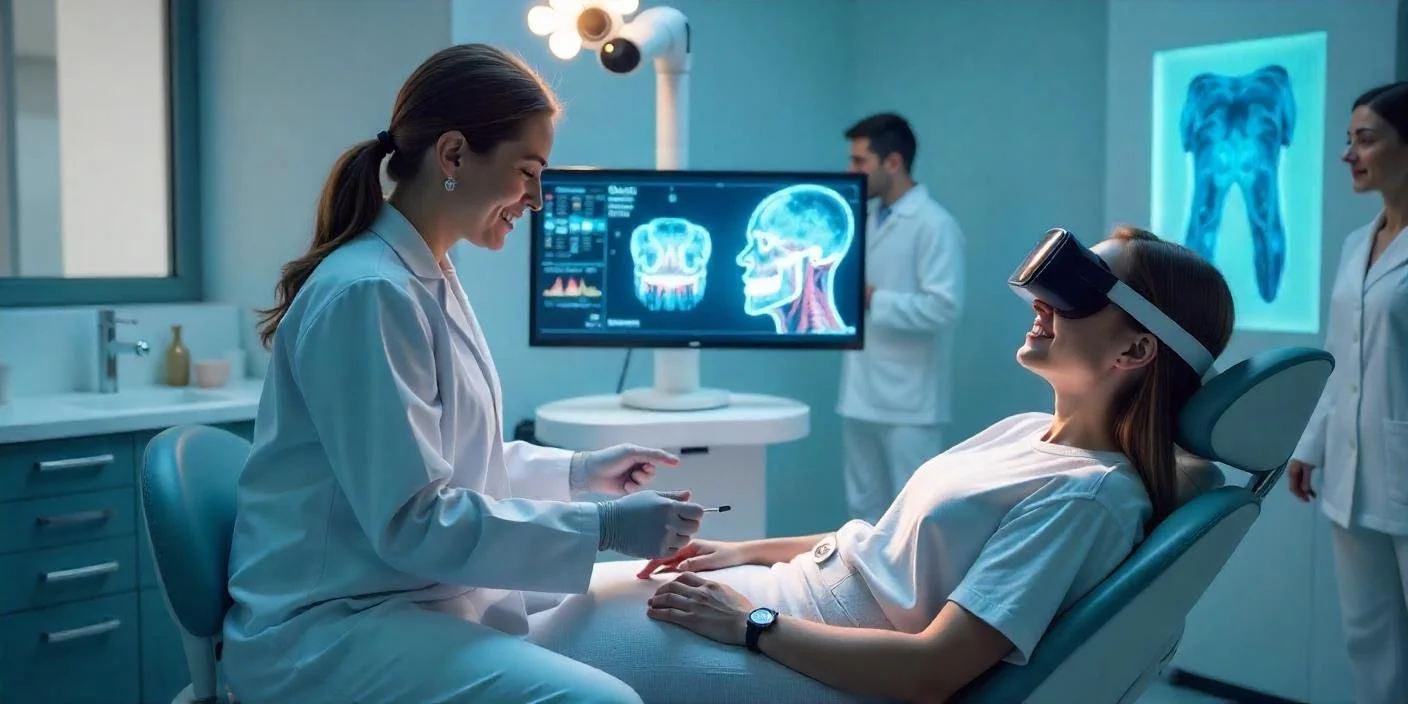Top Menopause Specialists Near Me: Expert Care for Midlife Transitions
Menopause marks a significant transition in a woman's life, often accompanied by various physical and emotional changes. Finding the right specialist to guide you through this journey is crucial for managing symptoms and maintaining overall well-being.
Menopause specialists near you can provide personalized care and expert advice tailored to your specific needs. These healthcare professionals have extensive knowledge of hormonal changes, treatment options, and lifestyle modifications that can help alleviate menopausal symptoms.
Perimenopause, the period leading up to menopause, can begin years before the final menstrual cycle. Recognizing early signs and seeking professional guidance can make a substantial difference in navigating this phase smoothly. Qualified specialists can offer comprehensive support, addressing concerns such as hot flashes, mood swings, and sleep disturbances.
Finding the Right Menopause Specialist
Locating a qualified menopause specialist is crucial for managing symptoms and maintaining overall health during this life stage. The right specialist can provide personalized care and expert guidance.
Criteria for Selecting a Specialist
When choosing a menopause specialist, consider their experience and expertise in treating menopausal symptoms. Look for gynecologists or obstetricians who focus on midlife women's health.
Evaluate the specialist's communication style and approach to treatment. A good specialist will listen to concerns and explain options clearly.
Check if the doctor stays current with the latest research and treatments in menopause care. This ensures patients receive up-to-date, evidence-based care.
Consider the specialist's availability and the clinic's location. Regular follow-ups are important, so accessibility matters.
Utilizing Directories and Menopause Societies
The North American Menopause Society (NAMS) offers a directory of certified menopause practitioners. This resource helps locate specialists in specific geographic areas.
Many hospitals and healthcare systems maintain lists of menopause specialists. These directories often include doctor profiles and areas of expertise.
Online platforms and medical associations provide search tools to find menopause specialists. Users can filter by location, insurance acceptance, and patient reviews.
Local gynecology practices may offer referrals to menopause specialists within their networks.
Certifications and Qualifications of Menopause Practitioners
NAMS offers a Certified Menopause Practitioner (NCMP) credential. This certification indicates specialized knowledge in menopausal care.
Look for board certifications in gynecology or reproductive endocrinology. These qualifications demonstrate advanced training in women's health.
Some specialists may have additional certifications in integrative medicine or hormone therapy. These can be beneficial for patients seeking specific treatment approaches.
Ask about the specialist's continuing education in menopause management. Ongoing training ensures they stay current with new developments in the field.
Check if the specialist is a member of professional organizations focused on menopause and women's health. Active membership often indicates commitment to the field.
Comprehensive Menopause Care and Support
Menopause care encompasses a range of treatments and support services to address physical and emotional symptoms. Specialists offer personalized approaches, combining medical interventions with lifestyle recommendations to improve quality of life during this transition.
Hormone Therapy and Alternative Treatments
Hormone therapy remains a primary treatment for managing menopause symptoms. It effectively alleviates hot flashes, night sweats, and vaginal dryness. Doctors prescribe estrogen alone or combined with progestin, tailoring doses to individual needs.
For those seeking non-hormonal options, several alternatives exist:
- Herbal supplements (e.g., black cohosh, red clover)
- Acupuncture
- Yoga and meditation
- Dietary changes
These complementary therapies may help some women manage symptoms. However, their efficacy varies, and consultation with a healthcare provider is essential before starting any new treatment.
Managing Mental Health During Menopause
Mood changes, anxiety, and depression can significantly impact women during menopause. Recognizing these symptoms is crucial for proper care.
Mental health support options include:
- Cognitive-behavioral therapy
- Mindfulness techniques
- Support groups
- Antidepressants (if necessary)
Regular exercise and maintaining social connections also play vital roles in mental well-being. Specialists may recommend a combination of these approaches to address each woman's unique needs.
Advancements in Telemedicine for Menopause
Telemedicine has revolutionized menopause care, providing convenient access to specialists. Virtual consultations allow women to discuss symptoms, receive medical advice, and obtain prescriptions from home.
Benefits of telemedicine for menopause care:
- Increased access to specialists
- Reduced travel time and costs
- Greater privacy and comfort
Many platforms now offer specialized menopause care services, including symptom tracking apps and online support communities. These tools empower women to take an active role in managing their health during this transition.
More Health Articles
Vision correction has come a long way from the traditional use of spectacles and contact lenses. In recent decades, remarkable advancements in medical technologies have given rise to solutions that offer more permanent fixes to common vision impairments. Of these solutions, laser eye surgery stands out, with its minimally invasive approach and a high success rate, the procedure is revamping the landscape of ophthalmology.
The dental industry has undergone a significant transformation in recent decades, primarily driven by advancements in technology. These innovations have not only enhanced the accuracy and comfort of treatments but also elevated the overall patient experience. From diagnostics to prevention and restorative procedures, modern dental care is increasingly reliant on tools and systems designed to improve outcomes and efficiency.
Injury prevention and rehabilitation often center on a familiar yet often misunderstood concept: core strength. While the term "core" is commonly associated with toned abdominal muscles, true core stability encompasses a complex network of muscles that provide foundational support for the entire body.






